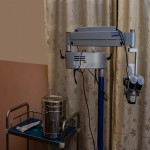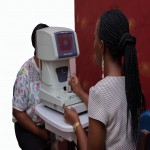My intraocular pressures (IOP) are normal, and so I don't have glaucoma
Fact: A person can have glaucoma even when the IOP appears normal. Intraocular pressures change at different times of the day, and so it is possible that the IOP that appears normal at the time it is tested in the clinic may be going up at night or early in the morning.
I can see clearly at all distances, and I can even see very tiny objects, and that means I don't have glaucoma
I can see clearly at all distances, and I can even see very tiny objects, and that means I don't have glaucoma Fact: One may have glaucoma even when the vision is perfectly normal. Glaucoma affects only the peripheral vision in the early stages. The ability of the individual to see at
My eyes feel perfectly healthy; I have no eye pain, redness, itching or discomfort, and so I don't have glaucoma.
My eyes feel perfectly healthy; I have no eye pain, redness, itching or discomfort, and so I don't have glaucoma. Fact: The most common form of glaucoma in our environment causes absolutely no symptoms. There is usually no associated eye pain, redness, discomfort, itching or discharge. No symptoms. At all. Just a
Nobody in my family has glaucoma, so I can't have glaucoma.
Nobody in my family has glaucoma, so I can't have glaucoma. Fact: Glaucoma can affect people who have no affected family members. It is true that the risk is higher in those whose parents, siblings or children have glaucoma. However, people who have no relatives affected can still have the condition.


